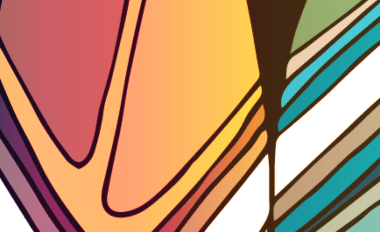The Victorian Aboriginal Heritage Council (Council) is committed to continuing its important work despite the current, extraordinary environment in which it is undertaken. Walking side by side with Traditional Owners, across the vast grasslands, mountains, coast and deserts of this place now known as Victoria, allows us to support each other during this time of uncertainty.
During the reporting period, Victorians have experienced disasters from bushfire and pandemic. As a Council of Traditional Owners, the damage to Country and Community has been profoundly difficult to bear. We have tried, as individuals and Council members, to be leaders and provide a voice of strength and unity for our People. Council’s work has continued and, indeed, increased in amplifying the voices of our People.
Working with Registered Aboriginal Parties (RAPs), Council’s new initiatives aim to have the voices of Traditional Owners heard across the community and to strengthen their statutory ownership of Culture and Country. Two new programs have broadened Council’s engagement reach and community understanding of the responsibilities of Traditional Owners.
The Taking Control of Our Heritage initiatives include Council’s Indigenous Cultural Heritage Conference (Conference), in March 2021 and Discussion Paper on legislative reform of the Aboriginal Heritage Act 2006 (Act). Together, these projects explore the way state and national legislations can provide better protections for our Heritage and greater support for our People to care for it.
The Discussion Paper considers key sections of the Act that need strengthening to enshrine both self determination and the United Nations Declaration on the Rights of Indigenous Peoples (Declaration), in Victorian Aboriginal Cultural Heritage legislation. The Act and Declaration, together, provide some of the greatest protections for Traditional Owners in the country. However, there is still much to be done in realising a fundamentally self-determined and tangible ownership of our Culture, Heritage, History and Country.
Later in this Report, Council details 35 concerns and recommendations that are impacting most on Traditional Owners’ capacity to care for Country. Alarmingly, 57% of concerns are of significant concern and need to be addressed within the next two years whilst 37% of concerns are now a critical stage and must be resolved as soon as possible to prevent further loss of irreplaceable Cultural Heritage.
We all have a part to play in ensuring our Peoples’ rights to self-determination, our Culture and Country. We seek the support and contribution of everyone to work with us on ensuring that the statutory protections our Peoples have for their Culture is commensurate to over 40,000 years of connection to Country.
The way we care for this Country, inherent in our Spiritual and Cultural wellbeing, is explored in Council’s Caring for Country initiatives. These projects provide a platform for Traditional Owners to discuss their Cultural Heritage and broader community responsibilities. They inform both community and stakeholder understandings and support the Taking Control of Our Heritage projects.
Central to these have been the partnership with Melbourne’s only Indigenous Radio Station, 3KND Kool N Deadly. On the last Wednesday of each month at 8.30am, Council hosts a segment on Caring for Country on the Big Big Brekky program. Each segment is an interview with a Traditional Owner on how they protect their Country and Cultural Heritage. Our People yarning about our Country is integral to the way we manage Country and Culture.
Supporting all these new initiatives was the Caring for Country live digital event for legislative reform at the Deakin Edge, Fed Square on 24 June 2020. This digital forum was hosted by Racquel Kerr with a panel of esteemed Traditional Owners including Hans Bokelund, Rodney Carter, Jamie Lowe and Rachel Perkins. As First Peoples, we must navigate the imposed legislations that govern our Cultural Heritage, we must contribute, and we must be part of the process to ensure we are accorded respect as the custodians of the oldest living Culture on earth. Talking publicly and asking questions is fundamental to this. The panel discussed caring for Country through a consideration of the current legislations protecting Aboriginal Cultural Heritage. During the event, Council launched the Taking Control of Our Heritage Discussion Paper on legislative reform of the Aboriginal Heritage Act 2006. With 750 people watching the event live and 1,400 views of the event online, we have shown the huge interest in and support for Traditional Owners in managing Culture.
On Saturday 6 July 2019, a significant milestone in realising Traditional Owner led management, protection, education and enjoyment of Aboriginal Cultural Heritage was made by the Gunditjmara Peoples. Their relationship to Country, their innovation and their custodianship was recognised at a global level with the inclusion of the Budj Bim Cultural Landscape on UNESCO’s World Heritage List. As Aboriginal People, we live in a modern context and we apply our understandings of cultural identity to a modern world. With this inclusion on the List, the modern world has acknowledged our ancient lineal connection to Culture and Country, forged over tens of thousands of years.
As a Council of Traditional Owners, we understand the work and commitment made by the Gunditjmara Peoples to have their ancient lineal connection to Country recognised. We applaud their strength and resilience in succeeding and encourage all Traditional Owners to follow in their footsteps and let the world look with awe on our Culture.
Let us never forget that we stand together as a Community, side by side as Traditional Owners and in the footprints of our Ancestors.
Rodney Carter
Chairperson
Updated

